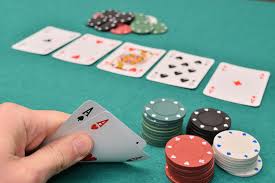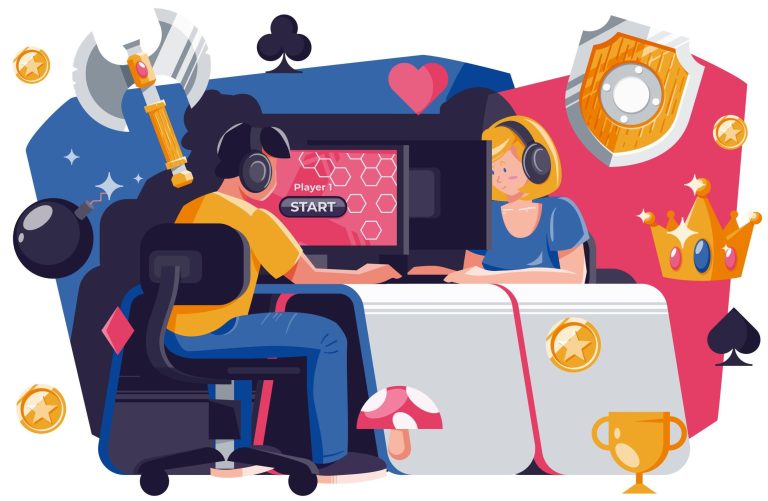
A Poker Cheat Sheet is a valuable tool for players looking to improve their understanding of the game and increase their chances of winning. It contains essential information about hand rankings, basic strategy, and tips to help both beginners and experienced players make better decisions at the poker table. Whether you’re playing Texas Hold’em, Omaha, or another popular variant, having a cheat sheet can be a game-changer.
1. Poker Hand Rankings
One of the most important elements of a poker cheat sheet is the ranking of poker hands. Understanding which hands beat others is crucial for making strategic plays. Here’s a quick rundown of the typical poker hand rankings from highest to lowest:
- Royal Flush: A♠ K♠ Q♠ J♠ 10♠ (same suit, Ace-high straight)
- Straight Flush: 9♠ 8♠ 7♠ 6♠ 5♠ (five consecutive cards of the same suit)
- Four of a Kind: 8♠ 8♣ 8♦ 8♥ 3♠ (four cards of the same rank)
- Full House: 3♠ 3♣ 3♦ 6♠ 6♣ (three of a kind and a pair)
- Flush: Q♠ 10♠ 7♠ 5♠ 2♠ (five cards of the same suit, not in order)
- Straight: 10♣ 9♠ 8♦ 7♠ 6♣ (five consecutive cards, mixed suits)
- Three of a Kind: J♠ J♦ J♣ 9♠ 5♠ (three cards of the same rank)
- Two Pair: 5♠ 5♦ 9♠ 9♣ K♠ (two sets of pairs)
- One Pair: 8♠ 8♣ Q♠ 10♦ 2♠ (two cards of the same rank)
- High Card: A♠ 10♣ 7♦ 6♠ 3♠ (if no hand is made, the highest card wins)
2. Basic Poker Strategy Tips
Beyond knowing the hand rankings, a good poker cheat sheet also provides strategic tips to help players make smarter decisions. Here are a few basic poker strategies:
- Starting Hand Selection: One of the most important decisions in poker is whether to play a hand or fold. For Texas Hold’em, hands like pocket aces (A-A) and king-queen suited (K-Qs) are strong starting hands, while hands like 7-2 offsuit should be folded in most situations.
- Position Is Key: The later you act in a hand (i.e., the closer you are to the dealer button), the more information you have about other players’ actions. Use this to your advantage, especially when you’re in a late position.
- Know When to Fold: A poker cheat sheet should remind you that folding is often the best decision. Don’t be afraid to let go of a hand that has no chance of winning, especially if the pot is getting too large and your hand is weak.
- Betting Patterns: The amount you bet can communicate a lot about your hand. Be mindful of your own betting patterns, and try to read your opponents’ betting behavior. A large bet often signifies a strong hand, but sometimes it can be a bluff.
3. Poker Bluffing Guide
Bluffing is a key component of poker, but it must be done strategically. A cheat sheet might include advice on when and how to bluff:
- When to Bluff: Bluff when the community cards show potential for a strong hand that you don’t have, or if you’re in a late position and your opponent shows weakness. The goal is to get your opponent to fold, especially if they have a medium-strength hand.
- When Not to Bluff: Don’t bluff too often, especially against players who are aggressive or likely to call. Bluffing against multiple opponents is also risky, as you’re more likely to be caught.
4. Quick Tips for Winning at Poker
- Pay Attention to Other Players: Observe your opponents and try to pick up on their tendencies. Are they aggressive or passive? Do they fold easily or play too many hands? This information will help you make better decisions in future hands.
- Manage Your Bankroll: Keep track of your wins and losses and never bet more than you can afford to lose. Good bankroll management ensures that you can continue to play without the risk of going broke.
- Stay Calm: Poker is a game of patience and discipline. Don’t let emotions influence your decisions, and don’t go on tilt after a bad hand. Stay focused and stick to your strategy.
Conclusion
A poker cheat sheet is an essential resource for players at all levels. By understanding hand rankings, employing sound strategies, knowing when to bluff, and practicing good bankroll management, you can significantly increase your chances of success at the poker table. Keep your cheat sheet handy, and with practice, you’ll become a more confident and skilled player.



